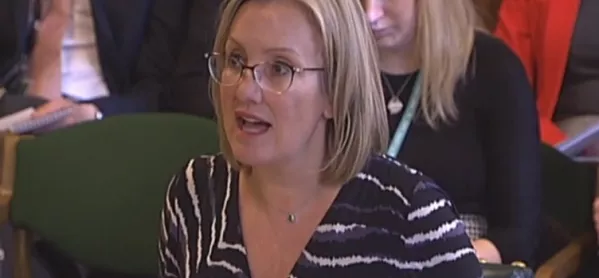Health minister Caroline Dinenage has admitted to MPs that pressures on funding have made life difficult for schools.
The Commons Education Select Committee is holding an inquiry into the state of education for pupils with special educational needs and disabilities.
Giving evidence to the committee today, Ms Dinenage, said: “There is no doubt that pressures on funding over recent years have made life very difficult for local authorities and schools.”
Quick read: Lack of SEND support in classrooms 'dangerous'
Quick read: Schools taking 'overly macho' approach to excluding pupils with SEND
Quick guide: Speech, language and communication needs
But she added that the investment in NHS was “enormous”.
“The long term plan funding [for the NHS] is going to be £20 billion a year additional,” she said. “That’s growing at double the rate of the British economy and the money we’re spending on mental health is growing faster than that and the money of that that we’re spending on children’s mental health is growing faster than that.
"It's not just about spending more money but prioritising how that money is spent.”
She was responding to James Frith, Labour MP for Bury North, who said that schools were “crying out” for resources – something which had been discussed in a Westminster Hall debate in parliament yesterday. Now he wanted to know what could be done about commissioning health services “upstream” to prevent children hitting a crisis.
Later in the debate, committee chairman Robert Halfon described the situation for schools as being like the "Wild West”.
He said: “Clearly the problem which is being highlighted by my colleagues is, in essence, who is paying for this?”
He read out evidence given at an earlier hearing by Sabrina Hobbs, principal of Severndale Specialist Academy, Shrewsbury, in which she explained that as a special school, they were using their education budget to pay more than £90,000 a year for nursing care for pupils.
Mr Halfon said: “It’s a lottery, it’s kind of a Wild West out there. If they [schools] are lucky the health authority might pay for it.
"I know schools are paying a lot for the health side of special educational needs and can barely afford it. So clearly it can’t just be left to leaders to decide, there has to be some kind of ruling from the government that health authorities in part of their budget, have to pay for this.
Ms Dinenage replied that the Department of Health did not earmark what budgets in each area should be spent on – but did send “clear messages” about priorities. NHS England had made autism and learning disabilities a clinical priority, she said.




